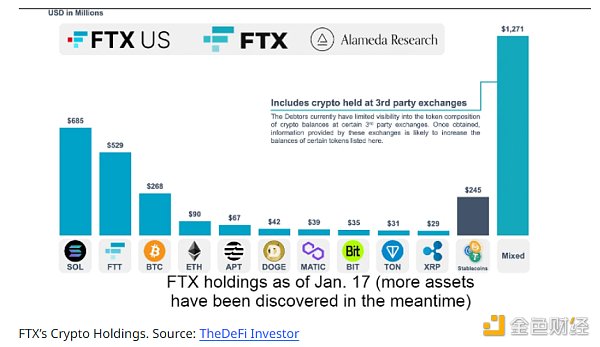SEC and FINRA jointly issued a statement to give a green light to DEXs
Abstract: Regulators are willing to open up at least some assets or activities.
Cryptographic exchanges are sailing in unknown waters, but new regulatory guidelines may help these companies land.
On July 8, local time, the two major US regulators, the US Securities and Exchange Commission (SEC) and the Financial Industry Regulatory Authority (FINRA), issued a joint statement on the obligations of digital asset brokers to clarify the application. Some rules for cryptocurrency exchanges.
The joint letter explores the digital meaning of customer protection rules that require brokers to “protect customer assets and separate customer assets from company assets”. “In the case of a business failure, this allows customers to take back their securities and cash.” This means that the two regulators have given a green light to startups offering limited brokerage services for crypto assets.
- The important trader of Plustoken has been repatriated and the police are investigating
- To protect the security of user assets, Coinbase wants to set up an exclusive insurance company.
- Wenkleworth Brothers: Four major technology companies will do cryptocurrency projects in the future
The key rule stated in the statement is that any escrow broker-dealer must “ actually hold all the margin and excess margin securities that the customer has paid, or keep it in a good control position and not have a lien. ”
Good news for DEXs
The letter should be a comfort to the unmanaged market such as ShapeShift, VertBase and decentralized exchanges. These agencies focus their attention on centralized exchanges to protect customers from losses in the event of business failure, theft or error. In accordance with the Customer Protection Regulations, the regulator has proposed a series of protective custody requirements for exchanges holding customers' digital assets.
However, according to the letter, unmanaged switching solutions do not face such requirements. “In general, unmanaged activities involving digital asset securities do not raise the same level of concern,” regulators said, “as long as they comply with relevant securities laws, SRO rules, and other legal and regulatory requirements.”
In contrast, it may be difficult for a centralized exchange to prove that it has actual control over consumer assets. As regulators have pointed out , ensuring full custody of digital assets is more difficult than physical assets or securities .
According to the letter:
“In fact, the behavior of the broker-dealer (or its third-party custodian) to maintain the private key itself may not be sufficient to prove that the broker-dealer has exclusive control over the security of the digital asset. (For example, it may not prove that no other party has it. A copy of the private key and the transfer of digital asset security without the consent of the broker-dealer).
In addition, the fact that a broker-dealer (or custodian) holds a private key may not be sufficient to reverse or cancel an erroneous or unauthorized transaction . These risks may cause losses to securities customers, and brokerage dealers shall bear corresponding responsibilities in the event of jeopardizing the interests of the company, customers and other creditors. ”
"A step in the right direction"
Legal observers in the field of cryptography welcomed the open letter as a small step towards regulatory transparency.
Jasmine Shergill, eToro's head of US regulatory affairs and former FINRA lawyer, said, "I'm not sure if the joint letter between SEC and FINRA will change the way the custodians are." "But it does give some comfort to unmanaged digital asset companies."
The open letter may also indicate that regulators are more willing to cooperate with the digital asset industry while adhering to the securities laws.
"Similar to the SEC's non-prosecution letter, this indicates that regulators are willing to open up at least some assets or activities."
Shergill said: "This is a step in the right direction. Digital asset companies and regulators are willing to work together to find constructive solutions that protect customers and keep up with market developments and needs."
However, the US Securities and Exchange Commission and the US Financial Industry Regulatory Authority also said that for companies that are trying to provide a full range of brokerage services, such as providing services that use the user's encrypted assets, they still have not obtained the approval of the two regulators, so only Can use third party hosting services.
As reiterated in the statement, the consequences for an exchange that does not comply with these guardianship laws can be quite serious. If a broker-dealer does not return the property of the client he owns, “… will be liquidated according to the National Securities Law. According to the National Securities Act, the securities client’s cash and securities held by the company as a securities client. Priority access."
Joint Declaration Link: https://www.sec.gov/news/public-statement/joint-staff-statement-broker-dealer-custody-digital-asset-securities
Source: crypto briefing
Compile: Sharing Finance Neo
We will continue to update Blocking; if you have any questions or suggestions, please contact us!
Was this article helpful?
93 out of 132 found this helpful
Related articles
- Semi-annual report | China blockchain policy inventory: Fujian, Yunnan strengthen the blockchain friendship
- The BTC calculation power has increased 27 times since the beginning of 2017. Can it stimulate the price increase?
- Two Evolution Directions and Value Analysis of Public Chain
- Samsung released a blockchain SDK based on Ethereum, and the blockchain phone is just a gimmick?
- In-depth analysis of market trends: mainstream currency or facing huge bearish
- Viewpoint | Libra eliminates the squint chain of blockchains
- Crazy mining machine market: Iranian miners domestic mining machine, second-hand mining machine rose 3 times in two months






